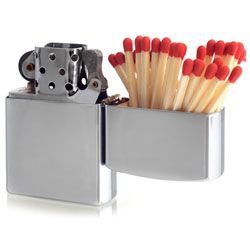Personal Fire Safety
Personal Fire Safety
Learn more about personal fire safety via the list below.
Alcohol, Cigarettes and Fire
Many fire deaths are caused by people attempting to cook or smoke while under the influence of alcohol. Don't put yourself — or your family — at risk of fire.
Alcohol and fire are a dangerous mix.
- Make sure the stove is off before going to bed.
- Take care to confirm that all cigarettes are properly extinguished and disposed of. Cigarettes can smoulder among upholstery cushions for hours before igniting. Check sofas and chairs for cigarettes that may have fallen between the cushions.
- Never smoke in bed or while under the influence of medication which may cause drowsiness.
- Test smoke alarms every month and replace the batteries when you change your clocks to daylight savings time.
Careless Smoking
Careless smoking is the leading cause of fire deaths in Ontario.
- Encourage smokers to smoke outside.
- Do not extinguish cigarettes in plant pots, which often contain a mixture of peat moss, shredded wood and bark that can easily ignite.
- Never smoke in bed or while under the influence of medication which may cause drowsiness.
- Use large, deep ashtrays that can't be knocked over.
- Empty ashes into a metal container — not the garbage can — and put the container outside.
- If people have been smoking in your home, check behind chair and sofa cushions for cigarette butts before going to bed.
- Install smoke alarms on every storey and outside sleeping areas in your home. For added protection, install a smoke alarm in every bedroom.
- Test smoke alarms every month and replace batteries when you change your clocks to daylight savings time.
Disabilities and Fire Safety
The risk of death or injury from fire is often greater for people with physical, mental or sensory disabilities. Identifying each person's individual risk factors allows for preparation of measures to offset those dangers.
Understanding the Risk
Why are people with disabilities at Risk?
- Physical limitations may have decreased ability to react in an emergency. Cognitive impairments may also prohibit or delay prompt recognition of an emergency in their environment.
- People with disabilities may be very independent and may not wish to alter their lives from those of the general public. In some cases people with disabilities may need the help of a caregiver to practice proper fire safety precautions.
- Governments, property owners and other relevant groups in our society also need to be aware of and utilize the necessary equipment, technology, and practices that ensure emergency procedures are accessible and work for people with disabilities.
- Education is a responsibility for all parties in reducing the risk of injury or death when an emergency occurs.
Install and Maintain Smoke Alarms
People with disabilities should be aware of the special fire warning devices that are available.
- Smoke alarms with a vibrating pad or flashing light are available for the deaf and hard of hearing. Contact the Canadian Hearing Society. Additionally, smoke alarms with a strobe light outside the house to catch the attention of neighbours, and emergency call systems for summoning help are also available.
- Ask the manager of your building, or a friend or relative to install at least one smoke alarm on each level of your home as well as inside of your bedroom.
- Make sure your smoke alarms are tested monthly and change the batteries at least once a year.
Live Near an Exit
Although you have the legal right to live where you choose, you'll be safest on the ground floor if you live in an apartment building. Never use elevators during a fire emergency.
- If you live in a multi-story home, arrange to sleep on the first storey.
- Being on the ground floor and near an exit will make your escape easier.
Plan Your Escape
Plan your escape around YOUR capabilities.
- Know at least two exits from every room.
- If you use a walker or wheelchair, check all exits to be sure you get through the doorways.
- Make any necessary accommodations, such as providing exit ramps and widening doorways, to facilitate an emergency escape.
- Understand ways of protecting yourself within a room that may include sealing cracks around doors, staying near the floor out of smoke and using windows to ventilate and signal from.
- If you do smoke, protect your clothing with a flame retardant smokers pad. Don't ever smoke when you are sleepy or taking a medication that may cause drowsiness.
Don't Isolate Yourself
People with disabilities should never be excluded from the development and practicing of escape plans and fire safety drills.
- Speak to your family members, building manager, or neighbours about your fire safety plan and practice it with them.
- Keep a phone near your bed and know how to access the 911 system especially through TTY if you are hearing impaired.
Know Your Responsibilities and Abilities
- You or your caregiver may contact the Fire Prevention Bureau for advice and assistance. When developing and practicing your evacuation plan be sure that you have minimized or removed any barriers related to your disability that you might encounter.
- When considering a new place of residence, be sure that the location does not create barriers to an emergency evacuation.
Matches and Lighters
In the hands of children, matches and lighters can be deadly weapons. Children can be injured or die in fires they start themselves.
- Keep all fire starting materials out of the sight and reach of children.
- If you smoke, have only one lighter or book of matches. Keep it with you at all times.
- Teach young children not to touch matches or lighters. They should tell an adult if they find them.
- Teach older children that if they find matches or lighters, they should take them to an adult.
- If parents suspect their child is involved in inappropriate fireplay, they can call Kingston Fire and Rescue for information and assistance.

